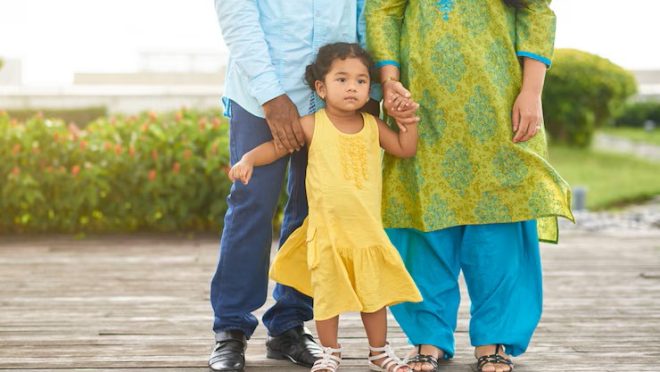Cost of parenthood: Why young couples in Dhaka are delaying having children
Cost of parenthood: Why young couples in Dhaka are delaying having children

Modern-day Dhaka has become an obstacle for young couples starting families, especially due to the increasing financial struggles.
With the cost of living escalating disproportionately to one’s disposable income, delaying parenthood has become the new normal.
Couples have started shifting their biological cycle depending on the time they reach a certain level of economic stability.
According to data of fiscal year 2023-2024 by the Center of Policy Dialogue (CPD), the monthly expenditures of a household exceed Tk47,000 excluding the additional cost of raising a child.
A child’s caregiving can easily cost Tk10,000 to Tk25,000 upon varying healthcare, hygiene, nutritional or feeding habits, and even educational costs. However, the pay of a first-class government officer has remained unchanged, stuck at Tk35,500, making it difficult for them to accommodate family planning.
The urban inflation rate continues to increase and was recorded at 9.35% in March and decreased a little to 9.17%, as per the Bangladesh Bureau of Statistics (BBS) and data from Bangladesh Bank.
Inflation has significantly impacted budgets, causing even dual-income families to struggle to meet their financial obligations, while single-income couples are often overwhelmed by the burden of debt.
Couples have expenses to bear, like rent, supporting parents, grocery, transportation, and emergency amounts for crises, leaving little to no room for saving up to have children.
Not only is financial burden the driving force behind couples delaying having children, but also finding necessary support in parenting is an obstacle, especially for working women.
The lack of a proper timeline and paid period of maternal leave makes it increasingly difficult for a new mother. There are very limited organisations that provide paternal leave, which is essential in the early months of the newborn and its parents. Moreover, domestic help or nannies are also very difficult to afford due to high expenses and costs in urban conditions.
It also takes a toll on people’s mental health. High stress, often due to heavy traffic congestion, unhealthy air, and road safety concerns, also makes young couples less willing to have kids.
A couple needs to feel they can offer love and affection, rather than just money, before deciding on having kids.
Deciding to have children later isn’t only a personal matter; it is affected by social and economic issues.
The trend will probably continue unless we ease the financial difficulty of raising a family. This includes broadening childcare options, enhancing maternal care, and providing new parents with both maternal and paternal leave to care for their newborns and spend sufficient time with them.
Also, by including tax benefits and workplace support for new mothers, the practice of delayed pregnancies may be deterred.
For many young couples in Dhaka, becoming parents involves more than money—it also means being mentally prepared, responsible, and strong. As long as the situation doesn’t improve, many might delay or even steer away from starting a family altogether.


